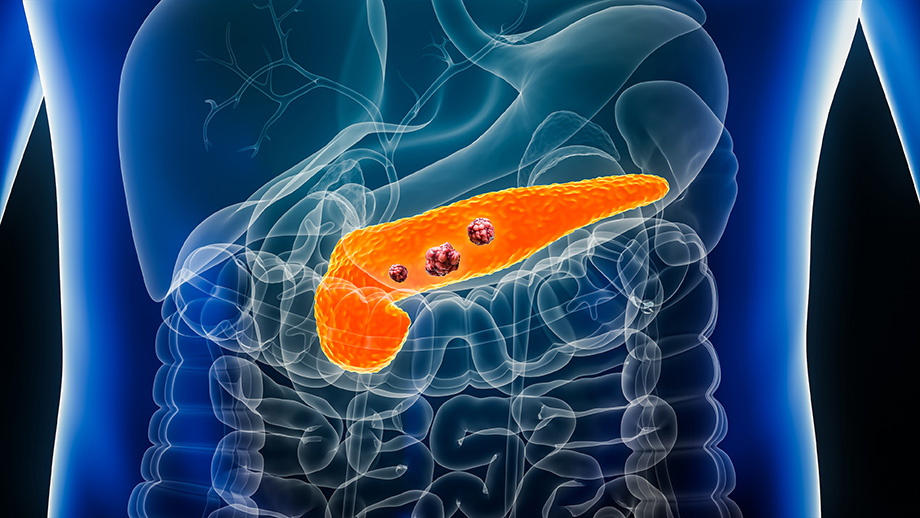Pancreatic cancer, or pancreatic ductal adenocarcinoma (PDAC)/pancreatic adenocarcinoma, has a mortality rate of nearly 90 percent. It originates in the exocrine tissue of the pancreas and is the most common type of pancreatic cancer, making up more than 95 percent of cases. It is also one of the most lethal cancers there is. But immunotherapy treatment is advancing rapidly, and it turns out that this particular type of cancer has T-cell neoantigens suitable for vaccines.
In May of 2023, a study was released that synthesized mRNA neoantigen vaccines in real-time from surgically resected tumors. The findings showed so much promise that Phase II of the trial has just begun. We spoke with John A Chabot, MD, Chief of the Division of GI/Endocrine Surgery and Executive Director of The Pancreas Center to find out more.
Will you start by giving us a little background on the clinical trial?
This was a very small Phase I clinical trial, done on patients who had operable pancreatic cancer. So, they had their operations, and each of them had a custom-made vaccine for their cancer. The cells were used to make their own individualized vaccine.
About half of the patients had a measurable immune response when the investigators looked for activity against the cancer cells. They then had their surgery, had their vaccine made, got their vaccination, and then had the routine type of chemotherapy that people get for pancreatic cancer.
So, you’re getting the vaccine between surgery and chemotherapy, is there a waiting period between the two?
There's a window of time because you can't treat people with chemo too early after these kinds of major operations. They found that about half of the patients had a measurable immune response to the vaccine.
It's just like a COVID vaccine, right? You can get tested to see if you have immune response to the vaccine. And at a relatively early follow-up period, none of the patients who had an immune response had recurrence of their cancer. Whereas a number of the patients who did not have an immune response did have a recurrence of their cancer. So, it's a very small study. It's a very limited period of time that the patients have been followed. But with all those caveats, it was a very, very exciting study.
When does Phase II of the trial start?
There is now a Phase II trial going on, using a very similar design. Patients who are operable when they're diagnosed, get their surgery and their individualized vaccine created, and then after the vaccine, they get the usual chemotherapy. We are participating in that trial, and we actually just enrolled our first patient.
Wow, that’s exciting. How does the personalized vaccine work exactly when it’s taking your own cells?
Cancer cells have unique molecules on their surface. That's how the immune system recognizes them. If they had all our typical molecules on their surface, there would be no such thing as cancer immunology. So, these cells make unique molecules, and it's not consistent. Everybody with pancreatic cancer doesn't make this particular unique molecule, and that's why these have to be individualized.
But instead of opening up the body's immune system to recognize the cancer in the person's body, the way something like the immunotherapy Keytruda does, it's a trigger to the immune system to say, “Go find this here.” It's like giving a bloodhound a scent and saying, "Go find this and kill it." So different ways of stimulating the immune system.
What else should patients know about Phase II of the trial? Enrollment criteria?
Well, it’s now expanded to multiple centers and is much larger. But the crucial thing is that they have to have operable pancreatic cancer. Because if you are stage four, you're not operable. So, operable or resectable pancreatic cancer at the time of diagnosis.
Say you have a patient who has had surgery once, and then needs a second surgery, could they participate in the vaccine trial after the second surgery?
Not as part of this trial. But I think if this proves effective, there will be all sorts of additional use cases. Absolutely.
Are there any other limitations to participating in the trial that people should be aware of?
Patients have to be fit enough for us to expect them to tolerate the usual chemotherapy we use. Part of the overall schema, design of the trial, is surgery followed by vaccination, followed by chemotherapy. So, we need to expect them to be able to go through the entire treatment program.
What are your hopes and predictions? Do you see this changing treatment?
Well, I'm a hopeless optimist, so I do find it very exciting. And the very preliminary results from the Phase I trial were striking enough to make the New York Times. So, it's really great to be part of the trial. It feels great offering it to people because it's hard to think of a significant downside. And there's the potential for real upside.
To talk to us about enrollment in this clinical trial or other clinical trials at The Pancreas Center please call (212) 305-9467.
[Official Title of Study: A Phase II, Open-Label, Multicenter, Randomized Study of the Efficacy and Safety of Adjuvant Autogene Cevumeran Plus Atezolizumab and mFOLFIRINOX Versus mFOLFIRINOX Alone in Patients With Resected Pancreatic Ductal Adenocarcinoma]
Further Reading
- A Major Stride in Pancreatic Cancer Treatment: How Artificial Intelligence is Showing Major Promise in Early Detection
- New Pathways: Researching and Innovating Pancreatic Cancer Treatment
- Five Pieces of Advice from a Pancreatic Cancer Survivor
Related
- What To Expect from an appointment at the Pancreas Center
- Pancreas Cancer Support Group
- Pancreatic Cancer Prevention & Genetics Program
- Read all of our patient stories

